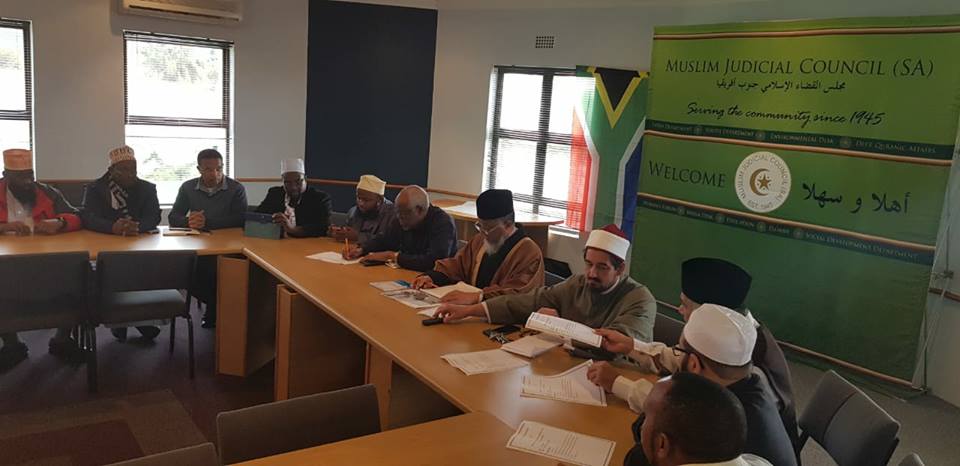By Yaseen Kippie
The Muslim Judicial Council (MJC) met with Somali Ambassador to South Africa, Jamal Mohamed Barrow on Monday, to allay any fears of a xenophobic backlash in response to last Thursday’s attack at the Malmesbury mosque. With increasing speculation about the motives behind the incident, ranging from xenophobic to sectarian-based rhetoric, MJC secretary general Shaykh Isgaak Taliep said the meeting was aimed at highlighting the harmonious relationship between the broader South African citizenry and the Somali community, many of whom have become South African citizens.
In the early hours of Thursday morning, a day before Eid-ul-Fitr, two Muslim men inside the mosque were stabbed to death allegedly by a Somalian man identified as Noor Abdullah. Two others were left injured and the alleged perpetrator was fatally wounded after a chase ensued between him and the police.
Ambassador Barrow and MJC President Shaykh Irafaan Abrahams issued a joint statement condemning the attack and committed to an increase in social cohesion between the Somali community and the broader Muslim community of the Western Cape.
In the statement, the MJC recognised “the role and invaluable contribution of the Somali community towards fellow South Africans and our economy,” and that the tragedy “appears to be an isolated incident.”
While observations of members of the Somali community indicate that Mr Noor Abdullah had been treated previously for bipolar disorder, the two leaders highlighted that they will give no judgment prior to official reports by SAPS and HAWKS.

“We have always lived harmoniously with the Somali community and them with us. They are valuable members in our society. They add to the expression of Islam in the Western Cape. They are instrumental in the building of mosques and humanitarian efforts. They view themselves as South Africans and not as foreigners,” Taliep said.
The Somali Ambassador expressed his condolences to the bereaved families and the injured. He distanced the Somali community from the crime, while focusing on the alleged perpetrator, willing to provide any necessary information.

According to the Chairperson of the Somali Community Board of South Africa Amir Sheikh, documentation proving that Mr Noor Abdullah was administered for bipolar disorder will soon be presented to the media. His erratic personality was known to the Somali community who traded with him in the Western Cape and that he was easily identified due to their close-knit nature. He says Abdullah was identified by the person who drove him from Bellville to Malmesbury the night before the incident. Abdullah’s body is still being kept for investigation, and will undergo usual Islamic rites for burial once released.
Sheikh says “after coexisting for two and half decades, the Somali community should not be tainted by one isolated incident.”
Amid speculation of sectarian based violence, Taliep says any connection made between the Malmesbury mosque incident and the Verulam mosque attack in Durban is unfounded.
“If any incident arises based on sectarian based violence, the MJC will not play SAPS or HAWKS, but will leave it to law enforcement officials,” Taliep said.
The Cape Accord, which aims to promote intra-Muslim peace and dialogue while condemning takfir (labeling a person a disbeliever in Islam), was not endorsed by the MJC, but Taliep says the Cape Muslim community “has always been tolerant and peacefully coexisting, holding healthy debates despite having different inclinations, and will continue to do so.” VOC






 WhatsApp us
WhatsApp us 

